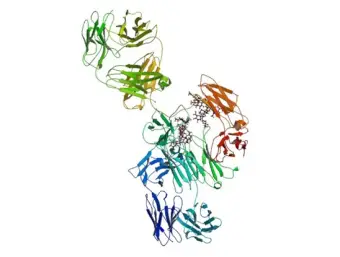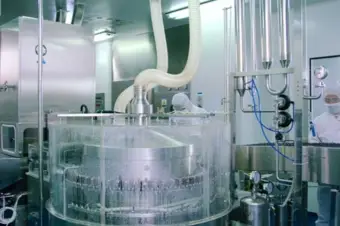Insulin Glargine API Manufacturers & Suppliers
Find, compare & contact
Filters
Custom request?
Type
Production region
Qualifications
Country of origin
Producer
Produced in:
Established in: 2003
MOQ: -
Employees: 4000+

20+ years’ expertise in API manufacturing, trusted for quality and global compliance.

Listed pharma leader in China, prioritizing transparency and regulatory excellence.

End-to-end integration from R&D to scalable production, delivering cost-efficient solutions.
+ 0
All certificates
Producer
Produced in:
Established in: 2019
MOQ: 1 g
Employees: 10+

Focused on pharmaceutical industry

Reasonable price for the customers

Full service from R&D stage to commercial stage
+ 0
All certificates
Distributor
Produced in:
Established in: 1987
MOQ: 1 kg
Employees: 50+

ISO 9001:2015 & SGS audited supplier

One-stop CDMO Solutions for APl and Key intermediates

Specialized in APIs & Pharmaceutical Intermediates for 38 years
+ 0
All certificates
Producer
Produced in:
Established in: 1995
MOQ: -
Employees: 10000

Fermentation technology Experts

Partnerships with 1200 pharma companies in 100+ countries

US FDA, EMA, COFEPRIES, ANVISA, PMDA accreditations
+ 0
All certificates
How does it work?
You can register for free as long as you are registering on behalf of a legal company related to the pharmaceutical industry
Search in the search bar the product that you’re looking for. We’ll show you an overview of all available suppliers. Use the filters to select the relevant suppliers only
Have you found interesting suppliers? Then it’s time to contact them. Use the send inquiry button and send them a message. You can send for each product, 3 inquiries per week
Suppliers get notified by Pharmaoffer that they’ve received a new inquiry. They will come back to you with their questions, certificates, and offer in the chat on Pharmaoffer. We will send you an email in case of any news
Does the supplier meet your quality and commercial requirements? Then you can place the order. Just follow the steps of our order module
Looking for Insulin Glargine API 160337-95-1?
- Description:
- Here you will find a list of producers, manufacturers and distributors of Insulin Glargine. You can filter on certificates such as GMP, FDA, CEP, Written Confirmation and more. Send inquiries for free and get in direct contact with the supplier of your choice.
- API | Excipient name:
- Insulin Glargine
- Synonyms:
- Insulin Glargine (rDNA origin) , Insulin glargine recombinant
- Cas Number:
- 160337-95-1
- DrugBank number:
- DB00047
- Unique Ingredient Identifier:
- 2ZM8CX04RZ
About Insulin Glargine
Want to know what Insulin glargine is used for? Insulin glargine is a long-acting form of insulin used for the treatment of hyperglycemia caused by Type 1 and Type 2 Diabetes. Insulin is typically prescribed for the management of diabetes mellitus to mimic the activity of endogenously produced human insulin, a peptide hormone produced by beta cells of the pancreas that promotes glucose metabolism. Insulin is released from the pancreas following a meal to promote the uptake of glucose from the blood into internal organs and tissues such as the liver, fat cells, and skeletal muscle. Absorption of glucose into cells allows for its transformation into glycogen or fat for storage.
Insulin also inhibits hepatic glucose production, enhances protein synthesis, and inhibits lipolysis and proteolysis. Insulin is an important treatment in the management of Type 1 Diabetes (T1D), which is caused by an autoimmune reaction that destroys the beta cells of the pancreas, resulting in the body not being able to produce or synthesize the insulin needed to manage circulating blood sugar levels. As a result, people with T1D rely primarily on exogenous forms of insulin, such as insulin glargine, to lower glucose levels in the blood.
You can ask the supplier about all relevant certificates for the product such as CoA, Safety Data Sheet and DMF.
Insulin Glargine is a type of Insulin
Insulin is a vital pharmaceutical Active Pharmaceutical Ingredient (API) that plays a crucial role in managing diabetes. It is a hormone produced by the pancreas and is responsible for regulating blood sugar levels in the body. Insulin is used extensively in the treatment of diabetes, a chronic condition characterized by insufficient insulin production or impaired insulin action.
As an API, insulin is available in various forms, including human insulin and analog insulin. Human insulin is derived from recombinant DNA technology, where it is synthesized using genetically engineered bacteria or yeast. Analog insulin, on the other hand, is a modified version of human insulin that is designed to mimic the body's natural insulin action more closely.
Insulin APIs are utilized in the production of pharmaceutical formulations such as insulin injections, insulin pens, and insulin pumps. These formulations are essential for individuals with diabetes who require regular insulin administration to maintain proper blood sugar control.
The development and production of insulin APIs require stringent quality control measures to ensure their safety and efficacy. Manufacturing processes must adhere to Good Manufacturing Practices (GMP) to guarantee the purity, potency, and consistency of the API. Additionally, regulatory bodies such as the Food and Drug Administration (FDA) closely monitor the production and distribution of insulin APIs to maintain high standards of quality and patient safety.
In summary, insulin APIs are critical components in the management of diabetes. They are manufactured using advanced biotechnological methods and are utilized in the production of various insulin formulations. Rigorous quality control and regulatory compliance are essential to ensure the effectiveness and safety of insulin APIs for patients with diabetes.
Insulin Glargine (Insulin), classified under Anti-diabetics
Anti-diabetics, belonging to the pharmaceutical API (Active Pharmaceutical Ingredient) category, are a group of compounds designed to manage and treat diabetes mellitus, a chronic metabolic disorder characterized by high blood sugar levels. These medications play a vital role in controlling diabetes and preventing complications associated with the disease.
Anti-diabetics encompass a wide range of drug classes, including biguanides, sulfonylureas, thiazolidinediones, dipeptidyl peptidase-4 (DPP-4) inhibitors, sodium-glucose cotransporter-2 (SGLT2) inhibitors, and glucagon-like peptide-1 (GLP-1) receptor agonists. Each class works through different mechanisms to regulate blood sugar levels and improve insulin sensitivity.
Biguanides, such as metformin, reduce glucose production by the liver and enhance insulin sensitivity in peripheral tissues. Sulfonylureas, like glipizide, stimulate insulin secretion from pancreatic beta cells. Thiazolidinediones, including pioglitazone, improve insulin sensitivity in muscle and adipose tissues. DPP-4 inhibitors, such as sitagliptin, increase insulin release and inhibit glucagon secretion. SGLT2 inhibitors, like dapagliflozin, decrease renal glucose reabsorption, leading to increased urinary glucose excretion. GLP-1 receptor agonists, such as exenatide, enhance insulin secretion, suppress glucagon release, slow gastric emptying, and promote satiety.
These anti-diabetic APIs serve as the foundational ingredients for the formulation of various oral tablets, capsules, and injectable medications used in the treatment of diabetes. By targeting different aspects of glucose regulation, they help patients achieve and maintain optimal blood sugar levels, thus reducing the risk of diabetic complications, such as cardiovascular disease, neuropathy, and nephropathy.
It is crucial for healthcare professionals to prescribe and administer these anti-diabetic medications appropriately, considering factors like the patient's medical history, co-existing conditions, and potential drug interactions. Regular monitoring of blood glucose levels and close medical supervision are necessary to ensure effective diabetes management.
In conclusion, anti-diabetics form a critical category of pharmaceutical APIs used for the treatment of diabetes. These compounds, encompassing various drug classes, work through distinct mechanisms to regulate blood sugar levels and improve insulin sensitivity. By facilitating glucose control, anti-diabetic APIs help mitigate the risk of complications associated with diabetes mellitus, ultimately promoting better health outcomes for patients.
Insulin Glargine manufacturers | traders | suppliers
We have 4 companies offering Insulin Glargine produced in 0 different countries.
Get in contact with the supplier of your choice:
- Yifan Pharmaceutical Co.,Ltd. from China, product country of origin China
- Apino Pharma Co., Ltd. from China, product country of origin China
- Sinoway industrial Co.,Ltd from China, product country of origin China
- Biocon from India, product country of origin India
Let the supplier know whether you are looking for a product with a specific monograph such as EP (Ph. Eur.), USP, JP, BP or another quality. Or, whether you are looking for hydrochloride (HCl), anhydricum, base, micronisatum or a specific purity.
You can use the filters to find high-quality suppliers. For example, you can select GMP, FDA or ISO certified suppliers. Visit our FAQ page or use the chat box in the corner to get more information about Pharmaoffer.












